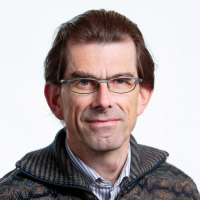Department of Infrastructure Engineering
Hear from our PhD students
Research areas and facilities
Our researchers contribute to the creation of sustainable infrastructure, delivering valuable benefits to the community, economy and environment.Our department focuses on fundamental and applied research across civil engineering, environmental engineering, and geomatics. We use advanced analytical and numerical approaches to complement our work. Explore our activities within these research areas below. They are further supported by state-of-the-art laboratories and facilities.
-
Civil engineering
Civil and Structural Engineering (including Building and Construction) is the centre of growth in the Department, and it already plays a vital role in research and in teaching. This discipline brings together the strategic research themes listed. This encompasses research, engineering, and field application activities that also include commercial and industry-funded activities.
-
Environmental hydrology and water resources
We focus on the broad topics of: hydrological processes; ecohydraulics; and environmental sensing and modelling.
-
Geomatics
Geomatics studies the production, management, analysis and communication of spatial information. This includes disaster management, land administration, measurement science and 3D modelling, smart cities, smart buildings, and smart mobility, spatial data infrastructure, spatial data infrastructure.
Industry collaboration and engagement
View a showcase of projects carried out in collaboration with industry partners and which demonstrate our research capabilities:
-
Industry Advisory Group
Our advisory group provides valuable insights on our strategic planning, teaching, and research programs, to ensure they are relevant to industry needs.
-
Laboratories and Facilities
Our laboratories and facilities support students, researchers and industry partners to access specialised equipment for structural and concrete labs, geotechnical testing and environmental testing and monitoring.
Industry collaboration projects
Industry engagement in teaching
We recognise the value of a curriculum guided by industry. We invite industry members to contribute to the ongoing refinement of our curriculum.
-
Undergraduate programs
We offer majors in all our disciplines via the Bachelor of Science and Bachelor of Design.
-
Graduate coursework programs
We offer a range of masters degrees.
-
Graduate research programs
Our graduate research programs – the MPhil and the PhD – are built on world-leading projects and are led by staff with international recognition for their multi-disciplinary research contributions. There is a vast array of research projects underway at Melbourne, working to solve big issues for industry, business, government and society.
-
Internships
A unique opportunity to practise technical skills in a real-life work environment, supported by a dedicated workplace and an academic supervisor. Gain practical experience to enhance your employment prospects and networking opportunities.
-
Sustainability
We are committed to achieving the University’s Sustainability Plan to address environmental sustainability and its inherent social impact across all our activities. Our first objective is to incorporate the Sustainable Development Goals into our subjects.
Featured content
Department leadership
Discipline leaders
Prof Angus Webb
A/Prof Shiaohuey Chow
Research higher degree coordinators
Directors of Centres
Professional staff
| Department Administration | |||
|---|---|---|---|
| Ana Bamborough | Department Administrator | ana.bamborough@unimelb.edu.au | 03 9035 8987 |
| Rajes Moodley | Department Administration | r.moodley@unimelb.edu.au | 03 8344 0362 |
| River Hoogenboom | School Administration Officer | river.h@unimelb.edu.au | |
| Madeleine Hess | School Administration Officer | maddy.hess@unimelb.edu.au | |
| Madelain Dolic | Academic Support Coordinator | madalain@unimelb.edu.au | |
| Kanchan Katkade | Academic Support Coordinator | kanchan.katkade@unimelb.edu.au | |
| Centres Administration | ||
|---|---|---|
| Centre of Spatial Data Infrastructures and Land Administration (CSDILA) | ||
| Shadan Boroumand | Administration Assistant | boroumand.s@unimelb.edu.au |
| Centre of Disaster Management and Public Safety (CDMPS) | ||
| Franca Tomaras | Executive Assistant | franca.tomaras@unimelb.edu.au |
| Mallee Regional Innovation Centre (MRIC) | ||
| Rebecca Wells | CEO | rebecca.wells1@unimelb.edu.au |
| Paula Mastrippolito | Business Support Coordinator | paula.mastrippolito@unimelb.edu.au |
| Paul McClure | Project Officer | paul.mcclure@unimelb.edu.au |
The Department of Infrastructure Engineering sits within the Faculty of Engineering and Information Technology and houses the disciplines of Geomatics, Civil Engineering and Environmental Hydrology and Water Resources.
Our focus is on engineering infrastructure that’s sustainable. Infrastructure that considers the natural environment it supports, as well as the economy.
You’ll see this in our research and in the design of our courses, with undergraduate pathways in the Bachelor of Design and the Bachelor of Science right through to our flagship Master of Engineering programs.
An integrated future …
In combining these disciplines, our vision reflects industry practice.
To this end, we’re not just equipping you for a career in engineering. Our aim is to share knowledge, build capability and manage information to solve complex engineering challenges and develop future leaders in the community.
-
Annual reports
Our department annual reports from 2011 onwards.
-
Alumni
How alumni can get continue as part of our community and a list of our recent graduate research alumni.
-
Surveying and geomatic engineering collection
Our historical geomatics collection includes examples of types of instrument used for astronomical, angular and distance measurement, together with instruments for the computation, plotting and presentation of the survey data.
Infrastructure Engineering Strategy 2019–2020: OHS Objectives
The Department of Infrastructure Engineering is fully committed to establishing a safer workplace that protects all staff and students by eliminating, or better managing, health and safety hazards.
We, the Senior Executives, are fully committed to the provision of appropriate support for training in order to assist all staff and students to fulfil their responsibilities and maintain a safe working environment. Through consultation and cooperation with the Faculty of Engineering and Information Technology OHS team, we create a systematic approach to managing health and safety risks across our labs and our wider department environment, in which staff, students and contractors can observe OHS rules and safe working practices and make every effort to reduce the risk of injury to themselves, their fellow colleagues, students, and others.
Head of Department and Infrastructure Engineering Senior Executive

